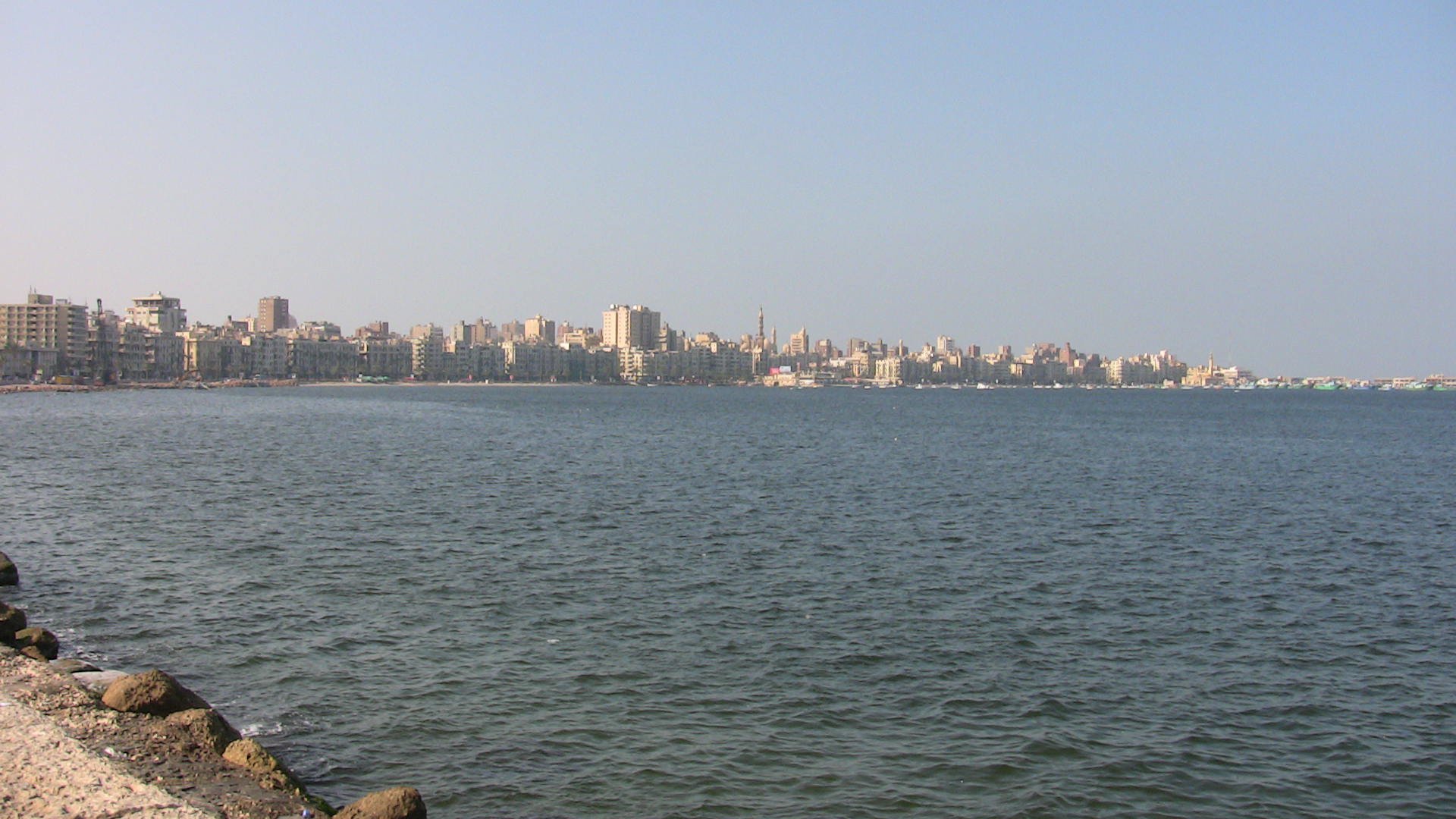The country is facing the dual threat of water needs surpassing resources by 2017, and rising sea levels in the decades ahead inundating much of the fertile Delta region, home to 60 percent of Egypt’s 78 million people, it added.
“Many of the towns and urban areas in the north of the Delta will suffer from the rise in the level of the Mediterranean with effect from 2020, and about 15 percent of Delta land is [currently] under threat from the rising sea level and the seepage [of salt water] into ground water,” Environment Minister George Maged told a parliamentary committee earlier this year.
Mohamed al-Raey of Alexandria University told IRIN in Cairo that flooding had already begun with the Mediterranean rising an average of 2 centimetres annually over the past decade. “It has already flooded parts of Egypt’s shoreline,” he said, predicting an increase in sandstorms and longer periods of drought followed by flooding.
Researchers predict the Mediterranean will rise by 30-100cm by the end of the century. A one-metre sea-level rise would submerge Alexandria.
Cairo has allocated US$300 million to build concrete walls to protect Alexandria’s beaches as part of a “national strategy study” to combat the coming floods.
“The plan now is to protect the beaches in the north, but after this the government will need to ask the world for help,” Hussein Al-Atfy, secretary for the Egyptian National Committee on Irrigation and Drainage, told IRIN, adding that the cost of preventative measures was too high for Egypt alone.
|
Photo: Otto Simonett/UNEP-GRID  |
| The impact of a sea level rise on the Nile Delta according to UNEP/GRID estimations. See larger version |
Water shortages are already hitting the poor - especially in areas surrounding new development projects which take massive amounts of water away from poorer areas in order to satisfy the growing needs of the new areas.
“A change in policies to develop a system for water use that suits everybody in Egypt is much needed if we are looking to maintain Egypt’s and the region’s economic, physical and environmental security,” Diaa Al-Qusi, a former consultant at the Water Resources Ministry, told IRIN.
Reduced Nile water flows coupled with Egypt’s rapidly growing population have already put a strain on agricultural output. The Ministry of Trade has extended a ban on exporting domestic crops such as rice, which consume a lot of water, till 2010.
Minister of Public Works and Water Resources Mahmoud Abdel Halim Abu Zeid said Egypt had “already entered the cycle of water poverty”.
In a recently released report, the cabinet’s Information and Decision Support Centre, a government research body, said Egypt would need 86.2 billion cubic metres (cu. m) of water in 2017, while resources would only reach 71.4 billion cu. m.
In 2006 Egypt's water resources were 64 billion cu. m, of which the Nile provided 55.5 billion cu. m, or 87 percent. But by 2017 the Nile is expected to supply only 80.5 percent of Egypt's resources, the report said.
Danger of military conflict
Egypt’s problem is compounded by the other 10 Nile basin countries demanding bigger shares of Nile water to compensate for reduced rainfall.
While Egypt and Sudan are the Nile’s largest consumers, other countries upstream are demanding a revision of the 1929 agreement between Egypt and Britain giving Egypt the largest quota of Nile water.
According to this accord, which is not recognized by the other eight Nile basin countries, Egypt is guaranteed 55.5 billion cu. m per year.
Some experts warn of military conflict between the 10 Nile basin countries over water allocations if differences are not resolved in time. Egypt’s Foreign Ministry considers Nile water a matter of national security and has argued that unlike other basin countries, it has no other source of fresh water.
“The Nile water is a matter of national security to Egypt and in the past Egypt's former president Mohamed Anwar Sadat threatened to use military power if any of the Nile basin countries tried to amend the 1929 agreement,” Hani Raslan of the Al-Ahram Centre for Political and Strategic Studies told IRIN.
ma/cb
This article was produced by IRIN News while it was part of the United Nations Office for the Coordination of Humanitarian Affairs. Please send queries on copyright or liability to the UN. For more information: https://shop.un.org/rights-permissions





